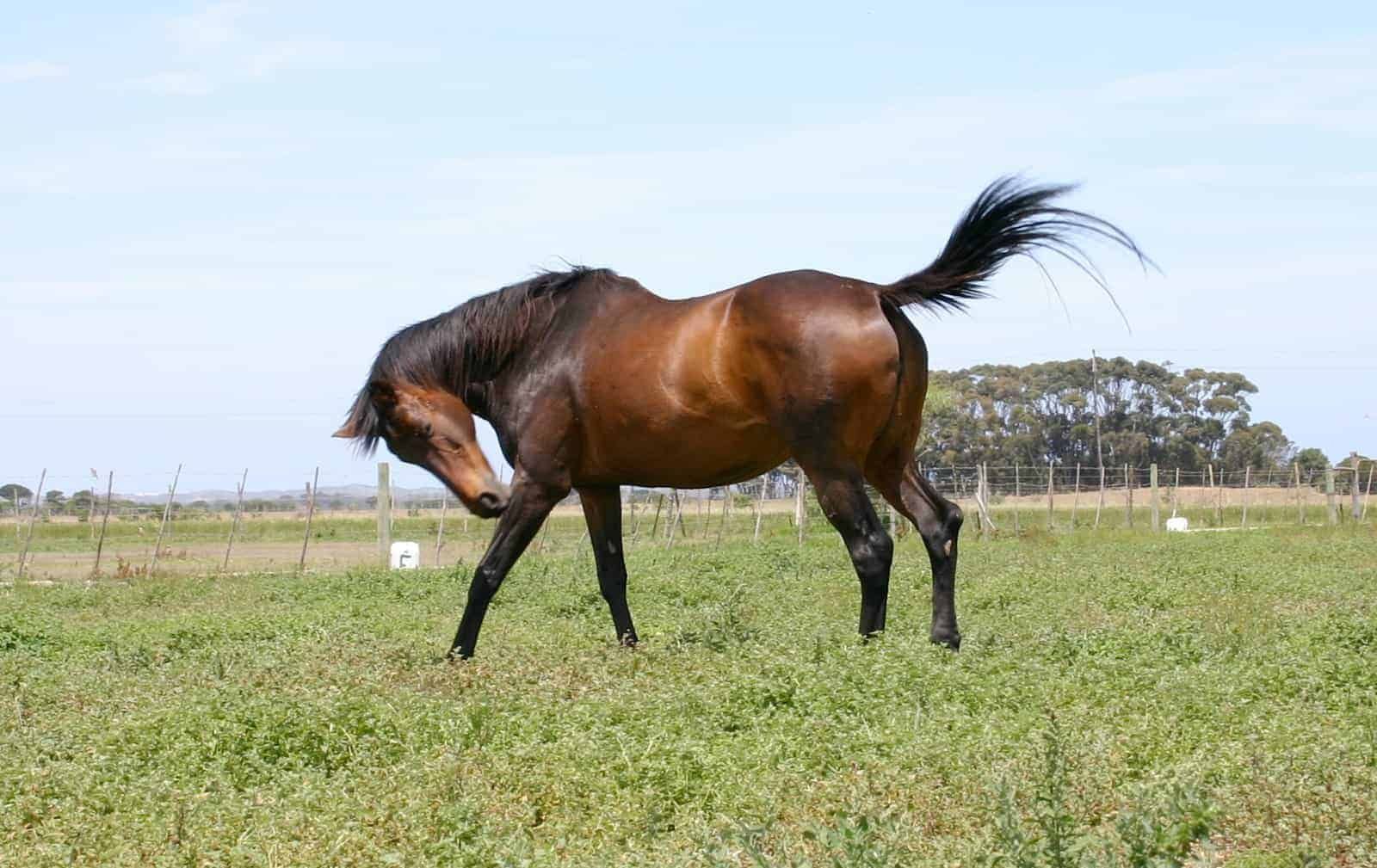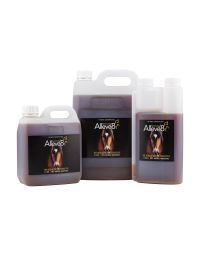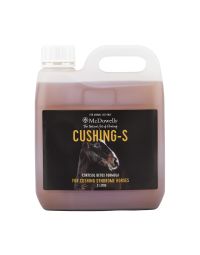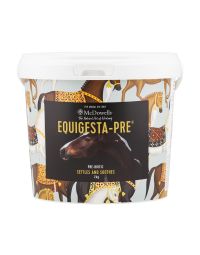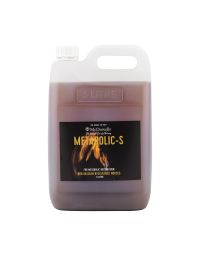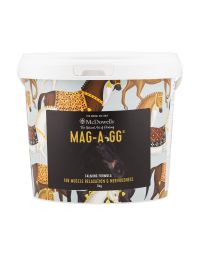Cushing’s Syndrome and Equine Metabolic Syndrome can have a devastating effect on your horse’s health. However, power is knowledge, and below we give you the information you need to better understand these conditions, know what to look out for, and how you can help to get your horse back to optimal health.
Cushing’s Syndrome
Cushing’s Syndrome, (or Equine Cushing's disease), is caused by a tumour in the pituitary gland where the production and regulation of hormones occur.
While the tumour itself is benign, the cells within the tumour produce excessive hormones that create an imbalance in the horse's self-regulating mechanisms.
Cushing's syndrome is most common in horses over 20 years old, although it has been known to occur in horses as young as seven years old. It is equally prevalent in both sexes and is found more often in Morgans than in any other breed.
The most notable symptom of Cushing's syndrome is the growth of a long, shaggy, and sometimes coarse coat of hair. This irregular hair often persists through the summer months and may be accompanied by sweating and flaky skin. These are all critical signs that a horse may have Cushing's syndrome.
Cushing’s Syndrome also has other associated symptoms which are caused by the hormonal imbalance in the adrenal gland. An affected horse may partake in excessive drinking, often drinking as much as 80 litres of water a day as opposed to the typical 20 – 30, and as a result, a significant increase in urination. A tendency for recurring infection in the hoof, A filling above the eyes caused by the deposition of fat, laminitis, development of a swayback stance, pot belly along with increased appetite usually with no accompanying weight gain are all symptoms that can be associated with Cushing’s syndrome.
Your vet's main diagnostic for Cushing’s is to run a blood panel to look at the ACTH levels. Whilst this may indicate Cushing’s, the full diagnosis must be accompanied by a suite of other clinical signs for this to be an accurate diagnosis.
What you can do
Horses and Ponies diagnosed with Cushing’s often have high levels of cortisol. Keeping your horse comfortable is important because excessive stress with make the syndrome worse.
Provide a safe and comfortable "sanctuary" for your horse and stick to a strict routine. Keep water and feed conveniently located in the same place, clip your horse in warm weather and use blankets when it is cold. It is also important to have teeth looked at by a professional twice a year, whilst being consistent in grooming to minimize skin diseases and keep hooves in good shape can help with these conditions.
In most cases of Cushing’s, you can use diet and herbs to manage symptoms without the need of a chemical medication. The diet will need to be naturally low in sugar and no soy products with appropriate levels of omegas, and proteins as well as micro and macronutrients.
Adding in a McDowell’s herbal program specifically designed for your horse and their condition will in most cases be all that is required to manage the situation.
Recomended products are:
Cushings-s
Alleve8
Equigesta Pre
Equine Metabolic Syndrome
Insulin resistance is the reduction in the horse’s ability to respond appropriately to the hormone Insulin. Insulin is a hormone that plays a key role in the regulation of blood glucose levels. In addition to its role in controlling blood sugar levels, insulin is also involved in the storage of fat. Ponies or horses that are “good doers” are examples of this, carrying heavy thick crests and fatty deposits over the body. High levels of adipose tissue cause systemic inflammatory processes which create neuro-endocrine feedback loops that perpetuate the metabolic imbalance.
Processed feeds and unnatural living conditions are one of the reason behind the increase in this syndrome amongst our modern equine population, much like people living in high-density housing and eating Fast Food. Hormone-disrupting chemicals in the food chain as well as processed diets high in non-structural carbohydrates the basis of high-risk scenarios.
Certain grasses containing not only high sugar levels but also other Phyto chemicals all contribute to the syndrome.
Some breeds are more susceptible than others. Andalusians, Friesians, Welsh ponies, Shetlands, minis, Warmbloods etc are all possible candidates for the condition.
The main outcome of horses with EMS is uncontrollable laminitis leading to founder and often euthanasia is the only solution once horses are in this cycle.
Balancing the Hypothalamus, Thyroid and Adrenal axis.
A key factor in managing Cushing’s and Equine Metabolic syndrome is to understand the neuroendocrine system and the role that it plays in homeostasis. Once you understand this, it’s simply a matter of using herbs specific to these systems and feeding a whole-food natural diet that is naturally anti-inflammatory and low in sugars.
Combinations of herbs that support the Hypothalamus, Thyroid and Adrenal axis are used to encourage and maintain endocrine harmony. Borage, Blue Flag, Phytolacca, and Chamomile with the essential Chaste Tree.
It is also important to ensure that the liver and kidneys are functioning well. Dandelion, St Mary's Thistle, Buchu and Rosehips are all herbs that can support your horse’s liver and kidney function.
An interesting factor of these syndromes is the impact of negative stress and daylight hours. It’s important to understand that horses that are stabled under lights are the most vulnerable.
This treatment of our horses is very disturbing to their hormones, and as part of the management and restoration of the metabolism, it is important to ensure that your horse is not kept under lights.
Keep him with other horses, running around naturally if possible, on natural pastures that are low in sugars.
Recommended Products
Metabolic -s
Alleve8
Equigesta-Pre
Mag-A-GG
To book your free consultation with one of our practitioners regarding your horse's specific circumstances, please click here to submit a form.
